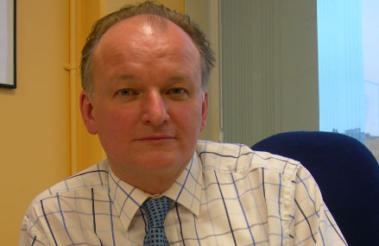Large charities and housing associations are competing unfairly with small charities for grants and contracts, the chief executive of the Lloyds Bank Foundation has said.
Paul Streets was speaking at a panel debate asking whether the behaviour of large charities had contaminated the sector, organised by charity sector think tank NPC, where he said that some large charities and housing associations were going after contracts and outbidding smaller specialist organisations in areas like social care and domestic violence.
Hes aid that “some new entrants to the market” are aiming for “volume, scale and reach” and are “prepared to walk over everybody” to get there. He said these charities were “no better than Serco or Capita”.
He added that when things go wrong it is the small community charities that “left to pick up the pieces”.
Cathy Ashley, chief executive of the Family Rights Group, said that her organisation had faced uncertainty over the renewal of its grant from the Department for Education, because larger charities had also chosen to bid for it.
She said this meant she had needed to issue redundancy notices and then withdraw them.
“Other charities always bid for it so we have to prove ourselves,” she said. “For us it would have been the end of the charity if we hadn’t got it, whereas for them they wouldn’t even have noticed.
“It is important for them to realise the impact they’re having when they go for these contracts.”
Lesley Anne Alexander, chief executive of RNIB said that commissioning was not just a problem for small charities, and that “commissioning doesn’t work for anybody”.
But Matthew Sherrington, sector consultant, said often the reason large charities were big is because they are tackling big issues so “more people support them”.
Working together
Ashley said that it was helpful for small charities to work with big charities on campaigns, because it “gives our lobbying extra force”.
“By working with the big boys we can be heard in a way that that we wouldn’t be if it was just us by ourselves,” she said.
Lesley Anne Alexander, chief executive of RNIB, said it was important for charities of all sizes to keep the mission as their focus.
“Keep the mission or the organisation in mind rather than the future of the organisation we will be a better sector,” she told the audience.
She said that being big enables her organisation to do things on a scale that others can’t. Later this year her charity plans to make a braille laptop available for under £300, significantly cheaper than others on the market, after partnering with an organisation in America.
“Because we are big enough we could take the risk and invest £500,000 to get that going,” she said.
She also said that sometimes small charities blame big charities unfairly. She said at one meeting she attended, a chief executive of a small sight loss charity had her charity had missed its fundraising targets because of the RNIB. But Alexander knew that RNIB had not fundraised in that area.
“Her default position was to blame big brother,” Alexander said. Instead of arguing with her she lent the charity a fundraiser and they now have a good relationship.
“As a sector we need to hold a mirror up to ourselves more often than we do,” she added.
Through co-ordinating the UK Vision strategy of 500 sight-loss organisations Alexander said that she had learned that “we don’t always have to be the senior partner” and that there is a role for all sizes of organisation.
“Keep the mission or the organisation in mind rather than the future of the organisation we will be a better sector.”
Too much focus on large charities
Streets also complained that the sector was too concerned with issues such as problems in fundraising, chief executive pay and social investment, instead of tackling government over the funding cuts affecting small charities.
He said that while small organisations faced both funding cuts and increased demand the sector was busy defending itself over on issues that “affect a tiny proportion of the sector”.
He urged the sector to “start ranting about the issues affecting smaller organisations” and describing the government programme of cuts as a “scandal”.
But Sherrington said that the focus on those issues was appropriate because the media and public are “concerned about that because of bad behaviour”.
He also highlighted that: “A lot of the most aggressive fundraising tactics employed are by medium sized charities that don’t have the brand power.”
Are there too many charities?
Alexander has previously said that she thinks there are too many charities.
She said there are currently 733 sight-loss charities in England and Wales.
“I don’t think that there should be just one charity for blind people but there should be fewer than 733,” she said.
But Streets said that his organisation had found that in some areas of the country there are not enough charities and his foundation had struggled to find organisations to fund.
“There are too many charities in the wrong place. In the North East there are not enough charities to fund. There is a myth that there are too many charities.”
Dan Corry, chief executive of NPC, reiterated his think tank’s suggestion that there should be more checks done before charities register. He said: “Small charities come to us finding life tricky and we find that when they were set up they didn’t check what charities were in their area doing something similar and they end up competing for funding.”









